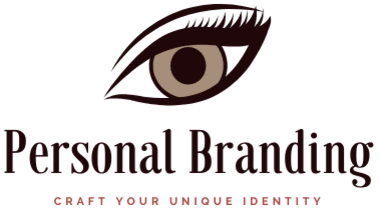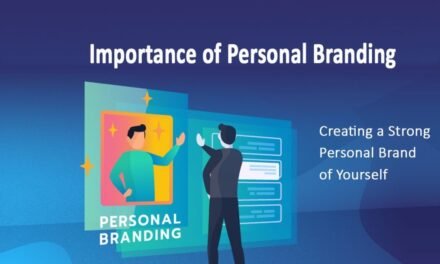Personal Branding for Professional Success
In today’s competitive world, personal branding has become a crucial element for professional success. Whether you’re an entrepreneur, freelancer, employee, or someone looking to make a career transition, your personal brand is one of the most powerful tools you can leverage. It’s not just about your name, appearance, or job title; personal branding is about how others perceive you and the unique value you bring to the table.
A strong personal brand can open doors to new opportunities, help you stand out in a crowded job market, and ultimately drive your career forward. So, how do you build and manage a personal brand that fosters professional success? This article delves into the significance of personal branding and practical steps you can take to enhance yours.
Why Personal Branding Matters
Your personal brand is how the world sees you. It’s the combination of your values, skills, expertise, reputation, and online presence. In many ways, it reflects the story of who you are and why people should care. Personal branding is especially important in the digital age because information about you is accessible at the click of a button. Whether it’s through your social media profiles, a blog post, or your online portfolio, people will form an impression of you based on what they find.
A strong personal brand helps you in several ways:
- Differentiates You from Others: In a competitive job market, your personal brand can set you apart from other professionals. By showcasing your unique skills, values, and experiences, you’ll become the go-to expert in your field.
- Builds Trust and Credibility: Personal branding is about creating an authentic image that reflects your true self. When people trust you, they’re more likely to engage with you, hire you, or do business with you. Consistency and authenticity are key here.
- Opens Doors to Opportunities: A well-established personal brand can attract new opportunities. Whether it’s job offers, business partnerships, speaking engagements, or media attention, people are more likely to approach you if you have a strong personal brand.
Steps to Build Your Personal Brand
Building a personal brand is a process that takes time and consistent effort. Below are some steps you can take to build and enhance your brand for professional success.
1. Define Your Brand Identity
The first step in personal branding is understanding who you are. Ask yourself:
- What are your values? What principles guide your professional and personal life?
- What are your strengths? What skills or expertise make you unique? What are you known for?
- What is your vision? Where do you see yourself in 5 to 10 years? What goals do you want to achieve?
By answering these questions, you can create a clear brand identity that reflects your core beliefs and aspirations. Your personal brand should tell a story that resonates with your target audience, whether they are potential employers, clients, or collaborators.
2. Be Authentic
Authenticity is the cornerstone of any successful personal brand. It’s important to be yourself and to showcase your true personality, skills, and experiences. Trying to mimic someone else’s brand may seem tempting, but it will only lead to inconsistency and confusion. People are drawn to individuals who are genuine and transparent. Your brand should be a reflection of your authentic self, and it should be aligned with your values and goals.
3. Create a Strong Online Presence
In the digital age, an online presence is essential for personal branding. Most people will Google your name before making a decision about you—whether it’s a potential employer, client, or business partner. Ensure that your online presence is professional, cohesive, and aligned with your brand identity.
- Social Media: Choose platforms where your target audience is active, and post regularly. LinkedIn, Twitter, Instagram, and even YouTube are great places to showcase your expertise and share valuable content. Focus on sharing insights related to your industry, thoughts on current trends, and personal experiences that demonstrate your skills.
- Personal Website or Portfolio: Having a personal website or portfolio is an excellent way to establish your brand. It acts as a centralized hub for your accomplishments, projects, and testimonials. Your website should clearly articulate who you are, what you do, and how people can contact you.
- Blogging: If you’re passionate about sharing knowledge, start a blog or contribute guest posts to reputable websites. Writing articles on topics you’re knowledgeable about will help establish your expertise and credibility.
4. Network and Build Relationships
Building a personal brand isn’t just about self-promotion; it’s also about creating meaningful connections with others. Networking allows you to expand your reach and strengthen your influence. Attend industry events, both online and offline, where you can meet people who can help you grow professionally.
Social media platforms like LinkedIn make it easier than ever to connect with industry leaders, colleagues, potential clients, and other professionals. Engage with others’ content, comment thoughtfully, and offer support where you can. Genuine relationships can lead to valuable collaborations and career opportunities.
5. Share Your Expertise and Thought Leadership
Becoming a thought leader in your industry is one of the most effective ways to elevate your personal brand. Sharing your expertise through articles, podcasts, webinars, or speaking engagements demonstrates that you are knowledgeable and passionate about your field.
By positioning yourself as a go-to expert, you not only build credibility but also attract opportunities for higher-profile projects and career advancement. Speak at industry conferences, host workshops, and contribute to relevant publications to increase your visibility.
6. Be Consistent
Consistency is key when it comes to personal branding. Whether it’s the tone of voice you use in your posts, the style of your professional photos, or the message you convey through your content, consistency helps reinforce your brand identity.
Make sure your branding is coherent across all platforms. This includes using the same profile photo, bio, and messaging across your social media profiles and website. A consistent personal brand helps build trust and recognition, making you more memorable to your audience.
7. Monitor and Evolve Your Brand
Personal branding is not a one-time effort; it requires continuous monitoring and evolution. Regularly assess how your brand is being perceived and whether it aligns with your personal and professional goals. Be open to feedback, adjust your strategies when necessary, and stay updated with trends in your industry.
As you grow in your career and acquire new skills, your brand may need to evolve. Stay flexible and adapt your brand to reflect your current expertise and goals.
Conclusion
Personal branding is a powerful tool for professional success. By defining your unique identity, building an authentic online presence, and continuously engaging with others, you can create a personal brand that sets you apart in your industry. Remember that your personal brand is a reflection of who you are and what you stand for. With consistent effort and strategic planning, your personal brand can open doors to new opportunities and propel your career forward.



